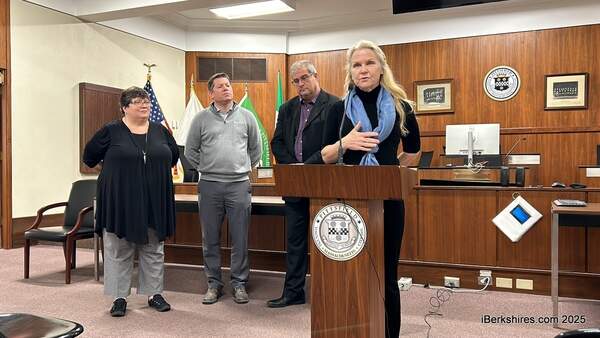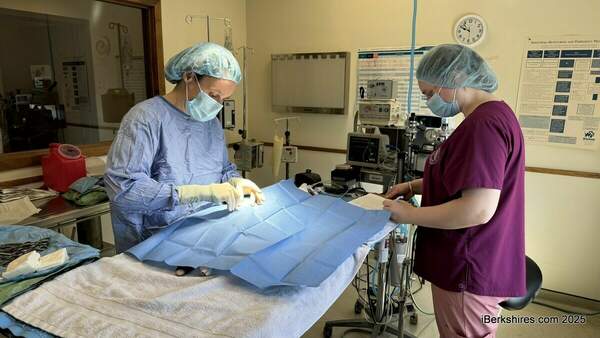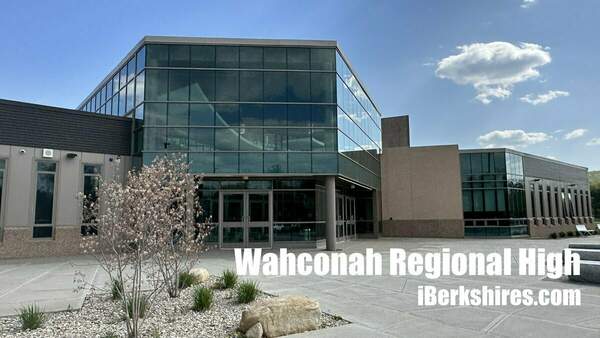
New Pittsfield School Committee Meets for First Time
PITTSFIELD, Mass. — The new School Committee met for the first time on Wednesday, organizing its leadership and approving a budget calendar for fiscal 2025.
William Cameron was re-elected chair, Daniel Elias as vice chair, and newcomer William Garrity as clerk. A 2022 Taconic High graduate and a former student representative, Garrity brings a fresh perspective to the committee.
"I just want to thank the voters of Pittsfield for electing me to the School Committee," he said. "It's great to technically be back. I'm excited for this term."
Cameron pledged to chair the committee as openly as possible while presiding in an orderly and respectable manner.
"This committee has much to do and a great deal of what we do will have a profound effect on students, their families, school employees, and the community at large," he said. "I am looking forward to working with you in addressing these many pressing issues."
The chair pointed out that the last panel committed itself to more effective and frequent use of subcommittees to mull items that require action. There are a total of seven subcommittees and Cameron will appoint members while taking into account the interests and skills of the individuals.
Elias welcomed new School Committee members, which also include Diana Belair and Dominick Sacco, and Mayor Peter Marchetti.
"In the past, we've had mayors that were not as engaged," he said. "Mayor [Linda] Tyer was. I'm sure that Pete will be very engaged."
The committee approved an FY25 budget calendar that outlines the process until the June 1 meeting with the City Council for the departmental budget.
Gov. Maura Healey will release the state budget no later than Jan. 24 and on Feb. 14, the district will provide an update on education spending outside of the school committee budget and the governor's budget.
"That's information about net school spending," Assistant Superintendent for Business and Finance Kristen Behnke explained.
"So all of the spending that the city does that's on the city's budget and books that is attributed to education but not spent specifically out of the School Committee budget."
This includes items such as health insurance, building maintenance, and field maintenance, which are run through different city departments.
A workshop will be held on Feb. 28 and on March 13, the committee will be presented with an overview and line-item budget.
There will be a public hearing on March 20 followed by another workshop on March 27 ahead of the committee's recommendations for budget option on April 10. The committee's budget adoption is staged for April 25.
"I know most people who watch these meetings probably already know this but a good bit of the money spent on the schools comes from state appropriations," member Sara Hathaway said.
"It goes through the city budget because that's how budgets are built and approved but the dollars come not from local property tax revenue but from the state and Pittsfield's aid has been generous in the last few years, in part because our population has changed."
The FY24 school budget was about $78 million and the Chapter 70 increase was about $6.5 million.
Hathaway also asked if it would be possible to work out a long-term plan for capital needs that are not covered by state funds because "I think we have had this problem of whose job is it to make sure that classrooms are bearable for the heat or cooling or whatever it might be."
Behnke explained that the district does include capital requests from the principals as part of the budget process and that information is funneled over to the building maintenance department.
"We also have had some other items on capital in the past. We've had our security upgrades also in conjunction with the building maintenance department and the buses, we have $3 million in the FY 24 capital budget for the purchase of new replacement buses this year," she said.
"So I certainly agree with you, we have a lot of needs and a lot of unmet needs but there is a process where we do some of this work."
Tags: fiscal 2025, pittsfield_budget, school budget,















